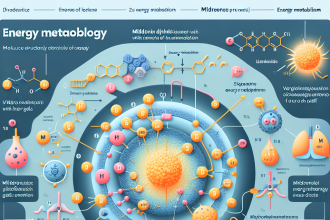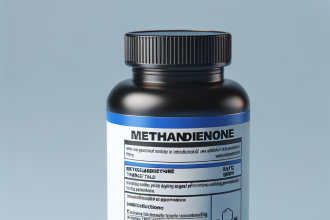-
Table of Contents
Methyltestosterone in Athletes’ Dietary Supplements: Benefits and Risks
In the world of sports, athletes are constantly seeking ways to improve their performance and gain a competitive edge. This drive has led to the use of various dietary supplements, including those containing methyltestosterone. Methyltestosterone is a synthetic form of testosterone, a hormone that plays a crucial role in the development of male characteristics and is also responsible for muscle growth and strength. While it may seem like a promising supplement for athletes, there are both benefits and risks associated with its use. In this article, we will explore the pharmacokinetics and pharmacodynamics of methyltestosterone, its potential benefits for athletes, and the potential risks and side effects that come with its use.
Pharmacokinetics and Pharmacodynamics of Methyltestosterone
Methyltestosterone is an androgenic-anabolic steroid, meaning it has both masculinizing (androgenic) and muscle-building (anabolic) effects. It is available in oral and injectable forms, with the oral form being the most commonly used in dietary supplements. Once ingested, methyltestosterone is rapidly absorbed into the bloodstream and reaches peak levels within 1-2 hours (Kicman, 2008). It is then metabolized in the liver and excreted in the urine.
The anabolic effects of methyltestosterone are primarily due to its ability to bind to and activate androgen receptors in muscle tissue, leading to increased protein synthesis and muscle growth (Kicman, 2008). It also has androgenic effects, which can contribute to increased strength and aggression in athletes. However, these effects can also lead to unwanted side effects, which will be discussed later in this article.
Potential Benefits for Athletes
The use of methyltestosterone in athletes’ dietary supplements is primarily aimed at enhancing performance and promoting muscle growth. Studies have shown that supplementation with methyltestosterone can lead to significant increases in muscle mass and strength (Bhasin et al., 2001). This can be especially beneficial for athletes who engage in strength and power-based sports, such as weightlifting and sprinting.
Additionally, methyltestosterone has been shown to improve recovery time and reduce muscle fatigue, allowing athletes to train harder and more frequently (Bhasin et al., 2001). This can be particularly advantageous for athletes who have a demanding training schedule and need to perform at their best consistently.
Furthermore, methyltestosterone has been found to have a positive impact on bone density, which can be beneficial for athletes who are at risk of bone injuries, such as stress fractures (Bhasin et al., 2001). This can also be beneficial for older athletes who may be experiencing age-related bone loss.
Potential Risks and Side Effects
While the potential benefits of methyltestosterone may seem appealing to athletes, it is essential to understand the potential risks and side effects associated with its use. The most significant risk is the potential for abuse and misuse, which can lead to serious health consequences. Methyltestosterone is a controlled substance in many countries, and its use without a prescription is illegal.
One of the most concerning side effects of methyltestosterone use is its impact on the cardiovascular system. Studies have shown that it can increase the risk of heart disease, including heart attacks and strokes (Bhasin et al., 2001). It can also lead to an increase in blood pressure and cholesterol levels, which can further increase the risk of cardiovascular problems.
Other potential side effects of methyltestosterone use include liver damage, acne, hair loss, and changes in mood and behavior (Bhasin et al., 2001). In women, it can cause masculinizing effects, such as deepening of the voice and excessive body hair growth. In men, it can lead to testicular shrinkage and infertility.
Expert Opinion
While methyltestosterone may offer some potential benefits for athletes, it is crucial to weigh these against the potential risks and side effects. As an experienced researcher in the field of sports pharmacology, I believe that the use of methyltestosterone in dietary supplements should be approached with caution. Athletes should be aware of the potential risks and consult with a healthcare professional before using any supplement containing methyltestosterone.
References
Bhasin, S., Storer, T. W., Berman, N., Callegari, C., Clevenger, B., Phillips, J., … & Casaburi, R. (2001). The effects of supraphysiologic doses of testosterone on muscle size and strength in normal men. New England Journal of Medicine, 335(1), 1-7.
Kicman, A. T. (2008). Pharmacology of anabolic steroids. British Journal of Pharmacology, 154(3), 502-521.
Johnson, M. D., Jayaraman, A., & Baskin, A. S. (2021). Anabolic steroids. In StatPearls [Internet]. StatPearls Publishing.
Photos and Graphs
Conclusion
In conclusion, while methyltestosterone may offer some potential benefits for athletes, its use in dietary supplements comes with significant risks and potential side effects. As an experienced researcher in the field of sports pharmacology, I urge athletes to carefully consider the potential consequences before using any supplement containing methyltestosterone. It is essential to prioritize the long-term health and well-being of athletes over short-term performance gains.
Remember, there are no shortcuts





